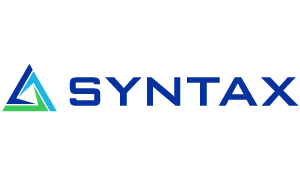SAP HANA
Filter By
Browse By
- SAP Analytics and AI
- SAP Application Development and Integration
- All SAP Application Development and Integration
- SAP ABAP
- SAP ABAP Development Tools
- SAP ABAP Test Cockpit
- SAP API Management
- SAP BAPI
- SAP Basis
- SAP BRF
- SAP Business Application Studio
- SAP CMS
- SAP Design Studio
- SAP Development Tools
- SAP DevOps
- SAP EAI
- SAP EDI
- SAP Extension Suite
- SAP Fiori
- SAP Fiori Elements
- SAP Integration Suite
- SAP Low Code Application Development
- SAP Low Code Automation
- SAP Netweaver
- SAP Release Management
- SAP UI5
- SAP Web Application Server
- SAP Web IDE
- SAP Business Process Management
- SAP Center of Excellence
- SAP CIO
- SAP Customer Experience
- SAP Data and Data Management
- All SAP Data and Data Management
- SAP BW
- SAP BW/4HANA
- SAP Crystal Reports
- SAP Data Archiving
- SAP Data Center
- SAP Data Governance
- SAP Data Integration
- SAP Data Migration
- SAP Data Quality
- SAP Data Services
- SAP Data Strategy
- SAP Data Visualization
- SAP Data Warehouse Cloud
- SAP DMS
- SAP Document Control
- SAP EIM
- SAP ETL
- SAP ETL Tools
- SAP HANA
- SAP HANA Administration
- SAP HANA Deployment Infrastructure
- SAP HANA Studio
- SAP Master Data
- SAP Master Data Governance
- SAP MDM
- SAP Enterprise Architect
- SAP Enterprise Asset Management
- SAP ERP
- SAP Finance
- All SAP Finance
- SAP Accounting
- SAP AR AP
- SAP Asset Accounting
- SAP Billing Systems
- SAP BPC
- SAP BRIM
- SAP Cash Management
- SAP Central Finance
- SAP Controlling
- SAP COPA
- SAP Cost Center Accounting
- SAP e-invoicing
- SAP FICO
- SAP Finance Automation
- SAP Financial Closing Cockpit
- SAP Financial Consolidation
- SAP Financial Planning
- SAP FX Risk
- SAP General Ledger
- SAP Global Tax Management
- SAP Hyperion
- SAP Order to Cash
- SAP Payment Processing
- SAP Profitability Analysis
- SAP Rebate Management
- SAP S/4HANA Finance
- SAP Universal Journal
- SAP Governance Risk and Compliance
- SAP Human Capital Management
- SAP Intelligent Technologies
- SAP Platform and Technology
- All SAP Platform and Technology
- SAP Business Technology Platform
- SAP Cloud Connector
- SAP Cloud Integration Platform
- SAP Cloud Migration
- SAP Cloud Platform
- SAP Cloud Providers
- SAP Cloud Strategy
- SAP Container Platform
- SAP Digital Asset Management
- SAP Digital Integration Hub
- SAP Digital Signature
- SAP HANA Enterprise Cloud
- SAP HEC
- SAP Hyperscalers
- SAP Infrastructure
- SAP Messaging
- SAP Smart Forms
- SAP Quality and Testing
- SAP Security
- SAP Spend Management
- SAP Supply Chain Management
- All SAP Supply Chain Management
- SAP APO
- SAP Asset Management
- SAP Business Network
- SAP Digital Manufacturing Cloud
- SAP Digital Twin
- SAP EWM
- SAP IBP
- SAP Inventory Management
- SAP Label Printing
- SAP Logistics
- SAP Manufacturing
- SAP Manufacturing Automation
- SAP MES
- SAP MII
- SAP MM
- SAP MRO
- SAP MRP
- SAP Order Management
- SAP Plant Maintenance
- SAP PLM
- SAP Production Planning
- SAP S&OP
- SAP SD
- SAP SPM
- SAP Supply Chain Planning
- SAP Track and Trace
- SAP Transportation Management
- SAP System Administration
What is SAP HANA?
Released in 2010, SAP HANA, also known as High-performance Analytic Appliance, is a column-oriented in-memory database that can be used for transactional and analytical workloads with any data type and on a single data copy.
What is SAP HANA?
Released in 2010, SAP HANA, also known as High-performance Analytic Appliance, is a column-oriented in-memory database that can be used for transactional and analytical workloads with any data type and on a single data copy.
SAP HANA serves as a comprehensive platform for enterprise resource planning (ERP) software and various business applications and can be deployed on-premises, in the cloud, or in a hybrid cloud setup, offering flexibility to organizations. One of the key features of SAP HANA is its ability to integrate data from different sources within an organization. This includes traditional business documents like contracts and spreadsheets, UX/UI elements such as website forms and customer interactions, mobile data from customer devices and employee smartphones, and IoT data from sensors embedded in various business areas like warehouses, trucks, stores, and offices. By integrating this diverse range of data, SAP HANA empowers organizations to leverage machine learning and artificial intelligence techniques for instant and in-depth analysis. This capability accelerates real-time decision-making by providing valuable insights into a company’s operations.
What is SAP HANA Used For?
Many organizations hold vast amounts of data stored in data warehouses, which remains untapped and fails to provide any value. Accumulation of unused data represents a significant potential resource, which, if properly utilized, could greatly accelerate business impact and deliver enhanced value to customers. SAP HANA offers a solution to this challenge by leveraging its high-speed, in-memory processing capabilities and real-time data analytics powered by machine learning. By harnessing a company’s data, SAP HANA enables streamlined processes, eliminates errors, and brings various benefits to clients, customers, and employees.
SAP HANA is designed to deliver speedy queries and high-speed transactions. Its architecture is centered around in-memory and column-oriented processing, providing not only database management capabilities but also developing applications, advanced analytical processing, and flexible data virtualization.
Why SAP HANA? Key Features and Capabilities
SAP HANA utilizes its in-memory, multi-model data management engine to fully leverage the capabilities of its hardware and minimizes data movements, and optimizes application speed and agility while analyzing real-time data. SAP HANA’s efficient data processing capabilities allow for seamless scalability, accommodating the growth of a business without compromising security or stability.
Real-time Data Management
With its in-memory technology, SAP HANA has revolutionized data management by eliminating the need for cumbersome batch processing. Instead, all data is readily accessible in real time without any latency. This shift to real-time processing enables enterprises to significantly simplify their management systems and make necessary changes to enhance operational efficiencies.
Database Enhancement Functionality
Typically, conventional database systems revolve around a single data model, imposing limitations on the organization, storage, and manipulation of data. In contrast, SAP HANA introduces a multi-model database that enables the support of multiple data models within a single integrated backend. This capability simplifies the establishment of relationships among various data points, enhancing the overall flexibility and versatility of the database system.
Advanced Analytics Processing Capabilities
With its advanced analytics processing capabilities, SAP HANA enables the utilization of vast quantities of data, including information from IoT sensors and mobile devices. By leveraging its machine learning engine, SAP HANA can extract data from and write to the server in real time. This instant data analysis allows for the prompt identification of issues and the implementation of effective solutions across various aspects of an enterprise. From payroll and human resources to customer care and supplier management, SAP HANA empowers organizations to swiftly address challenges and optimize performance.
Customized Application Development
Sitting atop the SAP HANA database is a software stack system that serves as a technology-agnostic server for web-based applications, whether they are SAP or non-SAP applications, chosen by developers. This server has the capability to interact with various file types and exchange data with any software, allowing businesses to swiftly develop and implement personalized queries and processes that are specifically tailored to their needs.
Advanced Tools Capabilities
SAP HANA’s advanced analytical processing empowers developers to create user-friendly tools that enable business teams to generate customized reports effortlessly, eliminating the need for assistance from IT or external consultants.
Benefits of SAP HANA
SAP HANA is a robust and secure solution for organizations seeking advanced data management and analytics capabilities. The SAP HANA database goes beyond simple data storage and serves as a single source of truth. It offers a wide range of benefits, whether deployed on-premises or with SAP HANA Cloud. Here are the top 10 advantages of SAP HANA:
- Includes a comprehensive suite of database services, advanced analytical processing, application development, and data integration capabilities.
- Ensures speedy query responses, even in large-scale production applications, with response times of less than a second.
- Supports hybrid transactional and analytical processing, accommodating various data types.
- Optimizes data storage by minimizing duplication, employing advanced compression techniques, and eliminating data silos.
- Leverages the power of SAP HANA’s Massively Parallel Processing (MPP) database for rapid querying of extensive datasets.
- Easily scales to handle growing data volumes and concurrent users across distributed environments.
- Offers deployment flexibility in public or private clouds, across multiple cloud providers, on-premises, or in hybrid scenarios.
- Provides a unified gateway for accessing all data sources and documentation through advanced data virtualization capabilities.
- Enhances applications and analytics with built-in machine learning (ML) capabilities.
- Ensures comprehensive data and application security, with secure setups and additional protective measures in place.
Join SAPinsider Today
Join SAPinsider to unlock opportunities for networking and engagement in the dynamic SAP ecosystem. As a member, you will have access to a wealth of valuable resources and content tailored to SAP technologies and best practices like latest research reports, articles, webinars, and events that will keep you informed and ahead of the curve.
SAPinsider membership grants you exclusive access to in-depth analyses, expert insights, and practical guidance that will empower you to navigate the ever-evolving SAP landscape with ease. SAPinsider membership will enable you to remain one step ahead and harness the latest trends, innovations, and strategies to drive your own powerful digital transformations, optimize your SAP investments, and unlock business success.
Join SAPinsider to access opportunities for networking and engagement in the dynamic SAP ecosystem. As a member, you will have access to a wealth of valuable resources and content tailored to SAP technologies and best practices like the latest research reports, articles, webinars, and events that will keep you informed and ahead of the curve.SAPinsider membership grants you exclusive access to in-depth analyses, expert insights, and practical guidance that will empower you to navigate the ever-evolving SAP landscape with ease. SAPinsider membership will enable you to remain one step ahead and harness the latest trends, innovations, and strategies to drive your own powerful digital transformations, optimize your SAP investments, and unlock business success.
469 results
-

- SAP Lumira
 Premium
Premium
What’s New in SAP Lumira 1.3x?
Reading time: 14 mins
Learn about the latest updates to SAP Lumira that are included in releases 1.30 and 1.31. SAP included several new capabilities and new functionality to help you deliver data-discovery workflows to your business user audience. Key Concept SAP Lumira is SAP’s product offering for the data discovery area in the overall SAP BusinessObjects BI offering....…
-

North America to Pull Ahead of EMEA with SAP S/4HANA Adoption in 2020
Reading time: 6 mins
by Pierce Owen, Vice President of Research, SAPinsider SAPinsider recently conducted a survey of its audience for the its “SAP S/4HANA Migration Benchmark Report,” which explains how and why SAP S/4HANA adoption has progressed globally over the course of the past year. Based on the findings of the survey, this research brief examines the differences...…
-

- SAP S/4HANA Finance
 Premium
Premium
Plan Your SAP S/4HANA Finance Migration with These Tips
Reading time: 24 mins
Learn how to plan your SAP S/4HANA Finance migration with some real-life insights. Key Concept In 2014, SAP introduced SAP Simple Finance Add-On 1.0 with many simplifications aimed at streamlining the finance processes at any organization. In 2015, SAP released an updated version, SAP Simple Finance Add-On 2.0, later renamed SAP Simple Finance On-Premise Edition...…
-
-

- SAP GRC
 Premium
Premium
The Impact of SAP S/4HANA On-Premise Migration on SAP Roles and Authorizations
Reading time: 8 mins
With the SAP-imposed deadline of 2027 looming for migrating to SAP S/4HANA, many of SAP’s customers are currently considering migrating their legacy ERP system to SAP S/4HANA. Resilient security is essential when moving forward with new technologies, and SAP software is no exception. SAP has made significant changes to the business suite’s data model in…
-

- SAP BW
 Premium
Premium
Cascading Prompts: The Next Generation of F4 Value Help Filtering
Reading time: 28 mins
Use native SAP HANA modelling techniques and enhancements to provide end users with a user-friendly, real-time variable selection process across massive amounts of data. Key Concept Achieving consistent and relevant user prompt selections across multiple BI front-end tools has been a key area for many BI implementations. Value help and the cascading filtering of a...…
-

Paving the Way to SAP S/4HANA Cloud
Reading time: 9 mins
With SAP S/4HANA Cloud, SAP brings the advantages of the cloud to ERP software with a suite of solutions that paves the way to digital, integrated processes across your business. So how does SAP S/4HANA Cloud integrate into existing software solution landscapes to enable end-to-end business processes? What options are available to support these integrations…
-

Build Your Business Case for SAP S/4HANA & NextGen Financial Technologies
Reading time: 12 mins
Panelists: Molly Boyle, Finance Transformation, BlackLine Bill Thomas, Finance Transformation Lead, EY Stephanie Miller, VP Finance CoE, SAP Sponsor: BlackLine It can be difficult to demonstrate the value of new technologies, such as SAP S/4HANA, that elevate accounting and finance departments. One of the most effective approaches is to draft a compelling business case that proves the...…
-
-

- SAP Lumira
 Premium
Premium
Integrate Multiple ERP Systems to Build Interactive Geographical Dashboards in SAP Lumira
Reading time: 9 mins
Rakesh Kalahasthi explains how to overcome a limitation in developing geographical charts in SAP Lumira by pulling data from SAP Business Warehouse (SAP BW) powered by SAP HANA. Key Concept All InfoCubes and DataStore objects (DSOs) can be accessed in SAP HANA as native SAP HANA models by importing them into the SAP HANA database...…
-

- SAP BW/4HANA
 Premium
Premium
Quick Tip: A Brief Introduction to Embedded SAP BW in SAP S/4HANA
Reading time: 10 mins
Learn the basics of embedded SAP BW and its technical details. Get an overview of the different architectural scenarios that leverage embedded SAP BW specifically from an SAP S/4HANA context, including those recommended by SAP. In addition, review the pros and cons of embedded SAP BW, which facilitates choosing the appropriate deployment option. Key Concept...…
-

An Inside Look at SAP’s HANA Release Strategy and How to Optimize Performance
SAP HANA is one of the most significant releases in SAP’s history. It represents an enormous shift, bringing traditional ERP processes and functionality together with a high-performance data analytics engine embodied in SAP HANA. Hear directly from SAP Expert Kurt Hollis with key insights into the SAP HANA release strategy and your steps to success…
Featured Insiders
-

Sachin Kachhawaha
COO, SAP Fieldglass Product Engineering
-

Shashidhar Garimella
SAP America Inc
-

Shawn Brown
Senior Director, SAP
Become a Member
Unlimited access to thousands of resources for SAP-specific expertise that can only be found here.
Become a Partner
Access exclusive SAP insights, expert marketing strategies, and high-value services including research reports, webinars, and buyers' guides, all designed to boost your campaign ROI by up to 50% within the SAP ecosystem.
Upcoming Events
Related Vendors
Your request has been successfully sent


